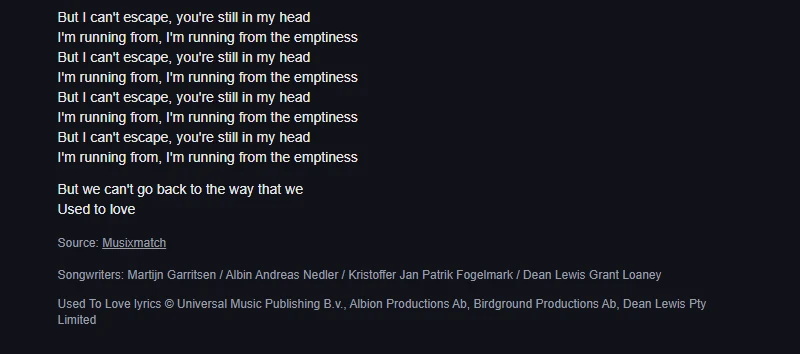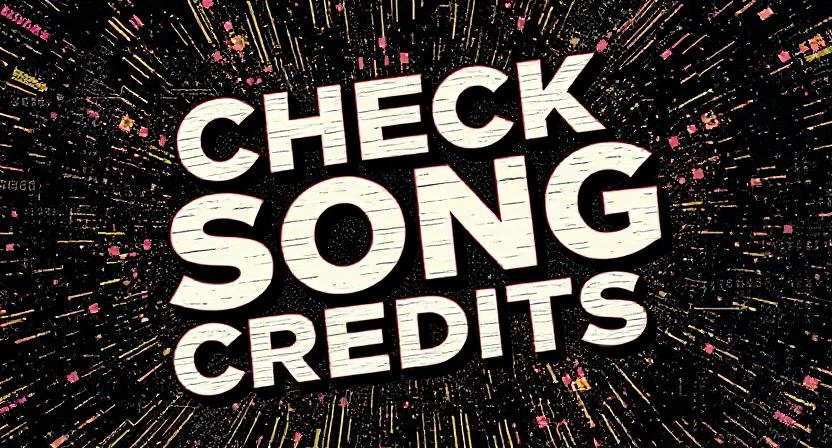A few years back, I fell in love with a song that felt like it’d been made by musical wizards. You know the type—the kind of track that makes you wonder, "Who even thinks of these melodies?" But it wasn’t magic. It was a producer named Clara, a songwriter named Diego, and a session guitarist who probably drinks way too much coffee. But figuring that out was its own adventure.
See, I used to think musicians only earned cash by playing live shows. Then I learned about royalties, sync deals, and that mysterious thing called publishing. Suddenly, credits mattered. If Clara, Diego, or Coffee Guitarist weren’t properly listed, they’d miss out on earnings every time someone streamed, covered, or hummed their song in the shower. But how do you even find those names? Here’s what I’ve learned—sometimes the hard way to check song credits or to know who else produced a song.
Spotify’s Hidden Treasure (No, Not the Music)
One lazy afternoon, I clicked the three dots next to a song title on Spotify out of sheer boredom. Lo and behold, “View Credits” popped up like a secret door. Inside, there is a list of names: writers, producers, even the studio engineer who probably tweaked the snare drum for three hours. It’s like finding the “Special Thanks” section of a movie but for your ears. Now I check it constantly. (I once discovered my neighbor’s cousin co-wrote a viral TikTok hit. Small world.)
It's also where you’ll spot ghost producers—the unsung heroes who make tracks in the shadows. Take David Guetta’s early EDM bangers. Tracks like “Titanium” or “Where Them Girls At” list collaborators like Giorgio Tuinfort or Frédéric Riesterer in the credits, even if their names aren’t splashed on the album cover. Or KSHMR, who ghost-produced for massive artists before becoming a festival headliner himself. These folks might not show up on the master recording’s label, but they’re hiding in plain sight in the credits.
When In Doubt, Ask a Music Nerd (Or Visit Discogs)
Discogs is where music lovers go to geek out. Think of it as Wikipedia’s cooler cousin who owns every vinyl ever pressed. I’ve spent hours there digging through credits for obscure ’80s synthpop bands. It’s user-curated, so details can get wildly specific. Ever wanted to know who played tambourine on a B-side from 1997? Discogs knows. It’s also a goldmine for indie artists—I once found my friend’s basement-recorded EP listed next to a Madonna album. Surreal, but proof everyone gets a seat at the table.
Lyric Sites: Not Just for Karaoke
I used to visit lyric sites to avoid butchering high notes in my car. Then I noticed tiny text at the bottom: “Written by [Name], Produced by [Other Name].” Sites like Musixmatch or LyricFind don’t just help you nail (oops—land) the chorus. They’re low-key credit detectives. I once googled a producer listed there and found out he’d also worked on my childhood favorite TV theme song. Life came full circle that day.

Jaxsta (Or, “Why Can’t I Have Nice Things For Free?”)
Jaxsta was my gateway drug into music credits. I signed up, marveled at its sleek database, then promptly learned it’s now subscription-only. Cue sad trombone. But their partnership with Vampr means some features live on. Still, it’s a reminder that accurate credits are valuable—literally. Professionals use tools like this because missing a name can mean missing a paycheck. Case in point: ever heard of Avicii’s breakout hit “Wake Me Up”? The credits quietly include Dutch producer Michael Aaron Einziger, proving even chart-toppers often have hidden architects.
Muso.ai: For When You’re Fancy (But Not Too Fancy)
Muso.ai is the future, minus the robot overlords. It’s a hub for credits, collaboration, and—yes—even some AI magic. For serious creators, it’s a solid way to track who did what, especially if you’re working with folks across time zones. Just don’t let the AI steal your job.
Why This All Matters (Besides Bragging Rights)
Credits are legal proof you helped make the thing. If you’re a songwriter or producer, proper credits ensure you get paid when the song’s on the radio, in a commercial, or soundtracking someone’s questionable dance moves. But even if your distributor lists your name, you still need to join a Performance Rights Organization (ASCAP, BMI, etc.) and a publishing administrator. Otherwise, royalties might as well be hiding in your couch cushions.
This is doubly true for ghost producers. Imagine creating a track that becomes the backbone of a Billboard hit, only to miss out on royalties because your name wasn’t in the credits. Oof. That’s why platforms like Spotify’s credit section or Jaxsta matter—they’re the paper trail that connects your work to your wallet.
So, next time you’re vibing to a track, peek behind the curtain. See who’s there. And if you’re creating music, double-check those credits, then get yourself registered. Because Coffee Guitarist—and every behind-the-scenes beat wizard—deserves their latte money.
P.S. If you’re ready to stop losing track of your royalties, check out Songtrust. They handle the publishing admin stuff so you can focus on making music—or, you know, figuring out how to program that synth loop without owl noises.
